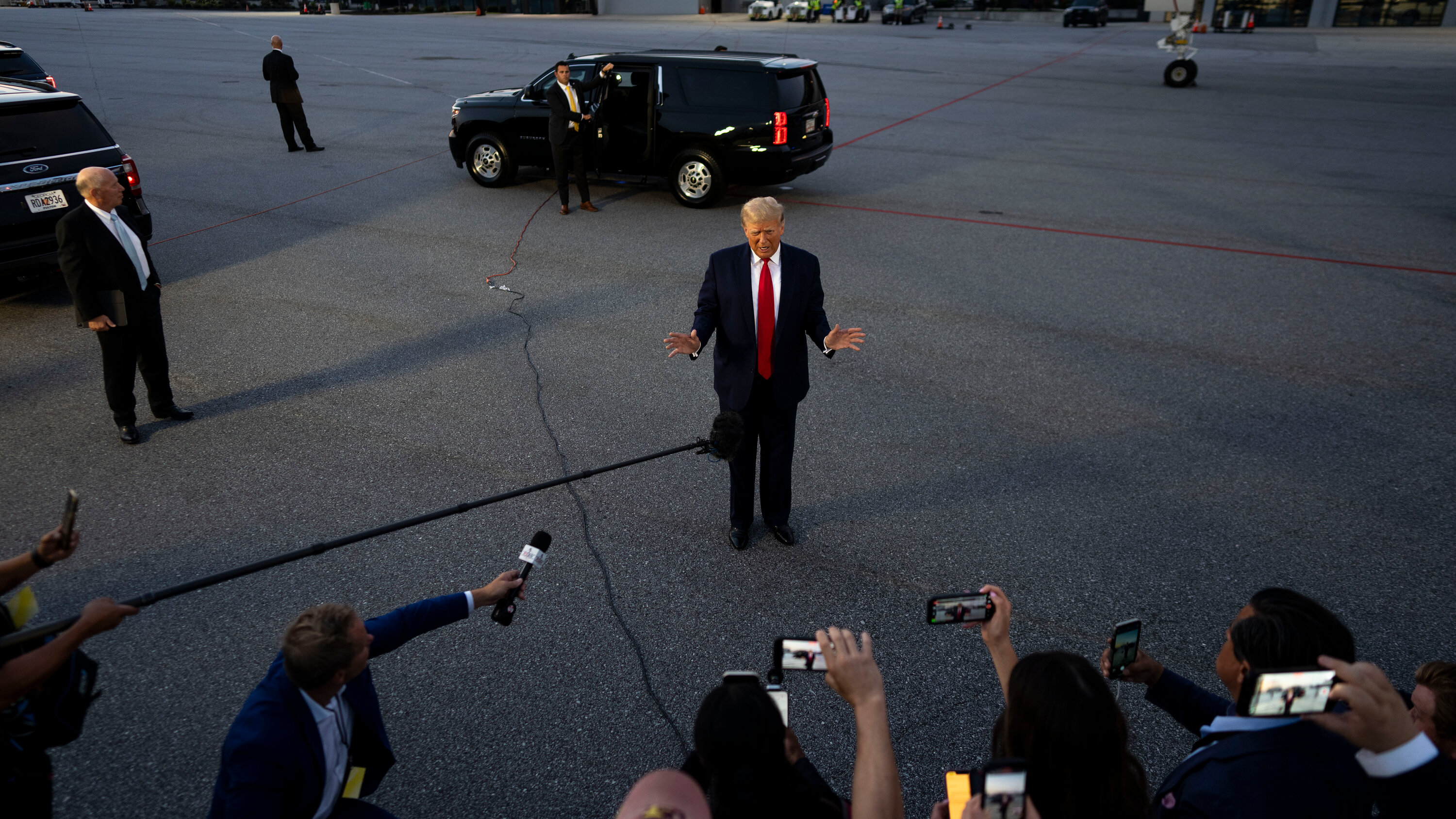Unraveling The Controversy: Donald Trump Getting Shot
The political landscape of the United States has seen its fair share of controversies, but few have stirred the pot quite like the rumors surrounding Donald Trump getting shot. This topic has not only sparked intense discussions among supporters and detractors alike but has also raised questions about the safety of political figures in today's climate. As the former President continues to navigate the complex world of American politics, the concern over his safety remains a pressing issue that demands attention.
In an era where political violence seems increasingly prevalent, the notion of Donald Trump getting shot is not just sensationalist; it reflects a broader apprehension about the state of political discourse. This article aims to explore the implications of such an event, consider the historical context, and evaluate the ongoing debates surrounding political security. The question is, how does society respond to the potential threats faced by public figures, and what measures are in place to protect them?
Moreover, the way the media portrays these events can significantly influence public perception. The sensationalism surrounding Donald Trump getting shot can lead to misinformation, panic, and a skewed understanding of the realities of political violence. Understanding the nuances of this topic is vital for fostering informed conversations about political safety, public reaction, and the ramifications of violence in politics.
What is Donald Trump's Background?
To understand the potential implications of Donald Trump getting shot, it's important to consider his background and rise to prominence. Born on June 14, 1946, in Queens, New York City, Donald John Trump is a businessman, television personality, and politician who served as the 45th President of the United States from 2017 to 2021. His unique approach to politics and his unfiltered communication style have made him a polarizing figure, garnering both fervent supporters and staunch opponents.
Donald Trump's Personal Details
| Detail | Information |
|---|---|
| Name | Donald John Trump |
| Date of Birth | June 14, 1946 |
| Place of Birth | Queens, New York City, USA |
| Education | Wharton School of the University of Pennsylvania |
| Profession | Businessman, Television Personality, Politician |
| Political Party | Republican Party |
| Presidency | 2017 - 2021 |
How Has Political Violence Affected Public Figures?
The question of Donald Trump getting shot cannot be divorced from the broader context of political violence in America. Over the years, numerous public figures have faced threats and actual violence, from the assassination of President Abraham Lincoln to the shooting of Representative Gabby Giffords. Each incident serves as a stark reminder of the potential dangers that accompany public service.
Moreover, the rise in politically motivated violence has prompted discussions about the security measures necessary to protect those in the public eye. For instance, after the attack on Giffords, there was a noticeable uptick in security protocols for politicians, highlighting the need for a robust response to threats against public figures.
What Security Measures Are in Place for Politicians?
The safety of politicians like Donald Trump is of paramount importance, and various measures are implemented to mitigate risks. These measures include:
- Personal Security Details: High-profile politicians typically have a dedicated team of security personnel to ensure their safety during public appearances.
- Surveillance Systems: Increased surveillance at events and public appearances helps to identify potential threats early.
- Emergency Protocols: Established protocols for evacuations and responses to threats are crucial for ensuring the safety of politicians.
- Collaboration with Law Enforcement: Politicians often work closely with local and federal law enforcement agencies to assess threats and enhance security measures.
What Are the Public Reactions to Threats Against Trump?
The notion of Donald Trump getting shot elicits a wide range of reactions from the public. Supporters may express outrage and concern for their leader's safety, while opponents might downplay the seriousness of such threats. Social media plays a significant role in shaping these perceptions, with discussions often spiraling out of control.
How Does Media Influence Public Perception?
The media's portrayal of incidents involving Donald Trump getting shot can significantly influence public perception. Sensational headlines and coverage can lead to heightened fears and anger among supporters, while critics may use such events to underscore their opposition to his policies. This cycle of sensationalism can create a charged atmosphere that complicates meaningful dialogue about political violence and safety.
What Can Be Done to Address Political Violence?
Addressing political violence requires a multi-faceted approach, including:
- Promoting Civil Discourse: Encouraging respectful conversations around political differences can reduce tensions.
- Implementing Stronger Security Measures: Continuous assessment and enhancement of security protocols for public figures is crucial.
- Raising Awareness: Educating the public about the implications of political violence can foster understanding and empathy.
- Legislative Changes: Advocating for laws that protect public figures while balancing free speech rights is essential.
What Lies Ahead for Donald Trump and Political Safety?
As Donald Trump continues to play a prominent role in American politics, the question of his safety remains ever-present. The ongoing discourse surrounding Donald Trump getting shot reflects broader societal concerns about political violence and its impact on democracy. It is imperative for society to confront these issues head-on to ensure a safer environment for all public figures.
In conclusion, the topic of Donald Trump getting shot is not merely a sensational headline; it embodies the complexities of political violence, public perception, and the measures necessary to protect those who serve in the public sphere. Engaging in constructive conversations about these issues can pave the way for a healthier political climate and a safer future for all.
Article Recommendations

